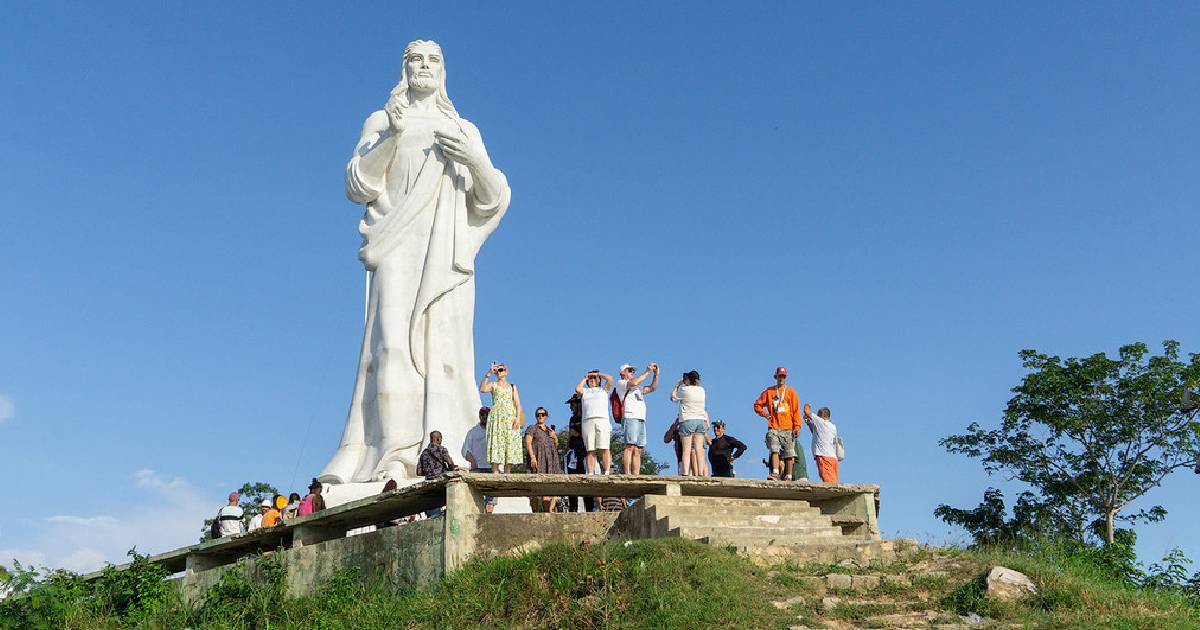
Related videos:
A recent preliminary report published by the National Office of Statistics and Information (ONEI) of Cuba has revealed striking figures regarding the performance of the tourism sector in 2024, a year soon to come to an end, consolidating a discouraging outlook for one of the country's main sources of income.
According to the released data, the number of international visitors was significantly lower than projected, showing a decrease compared to previous years.
Until November 2024, the country welcomed 2,719,259 travelers, which represents 95.2% of the total recorded during the same period in 2022, meaning 137,047 fewer travelers.
International visitors totaled 2,005,390, reflecting a 92.1% decrease compared to the previous year, which is equivalent to 172,451 fewer visitors.
The ONEI report establishes a key distinction between the terms travelers and international visitors, concepts that, while related, have specific definitions within Cuba's tourism statistics.
On one hand, a traveler is defined as anyone who moves between two or more different countries, being classified as international if the journey occurs outside of their country of residence, regardless of the reason for the travel or the mode of transportation used.
On the other hand, the term international visitor refers to individuals who travel to a country different from their usual place of residence for a period not exceeding one year, primarily for leisure, recreation, business, or other personal reasons, excluding paid activities in the visited country.
Regarding the statistics, the document outlines that several of the key source markets for tourists have experienced concerning declines:
- CanadaThe main market recorded 780,119 visitors, a 94.8% increase compared to the previous year.
- It seems that the text you provided is incomplete. Could you please provide the full text that you would like to have translated into English?Cuban community abroadfell to 82%, with 266,625 visitors.
- European markets,like Spain and ItalyThey experienced sharp declines of 73.2% and 83.3%, respectively.
- In contrast,Some markets, such as Mexico and Russiashowed increases of 103.2% and 104.4%, although these did not offset the total losses.
This decline in tourist arrivals translates to lower revenues for an economy that relies heavily on tourism. Issues such as deteriorated infrastructure, deficiencies in basic services, and decreased competitiveness against other Caribbean destinations have been crucial factors.
Additionally, diplomatic tensions and internal restrictive policies have also negatively impacted the international perception of Cuba as a tourist destination.
The report includes a comparative analysis of monthly arrivals, highlighting a downward trend since 2021. Despite slight increases in some months of 2023, the annual total remained far from pre-pandemic levels.
This negative trend has led the Cuban government to acknowledge that the projected target of 2.7 million visitors for this year will not be reached, and it is estimated that by 2025 the number will decline even further, with an estimated 2.6 million international tourists.
Some tourists have shared their experiences with the world regarding their stays on the island. In December 2024, a Spanish tourist reported the lack of water and other basic supplies at the Gran Hotel Casa Granda in Santiago de Cuba, highlighting the decline in conditions at establishments that once enjoyed prestige.
Censorship and repression by the Cuban government have also affected international visitors. In September 2024, a couple of Peruvian tourists, Eva Cavero and Andrés Izarnótegui, were deported from Cuba after filming videos on the streets of Havana for their YouTube channel, "La Blue Kombi."
According to reports, after spending two days in the Cuban capital, they were detained in their hotel during the early morning hours and taken to the immigration offices, where they remained under interrogation for 12 hours.
The authorities accused them of sharing information that harmed the country's image on social media, confiscated their mobile phones, reviewed their WhatsApp conversations, and threatened them with imprisonment for documenting life in Cuba.
There have also been reports of scams targeting foreign tourists. In May 2023, an Austrian tourist reported being a victim of a scam by a Cuban family, who allegedly stole 60,000 euros from her. Despite filing a complaint with the authorities, her case was dismissed.
Frequently Asked Questions about the Tourism Crisis in Cuba in 2024
What is the current state of tourism in Cuba in 2024?
Tourism in Cuba is facing a deep crisis in 2024, with a significant decline in the arrival of international visitors. Despite some increases in markets such as Mexico and Russia, the total number of visitors remains well below pre-pandemic levels, negatively impacting the country's economy.
Why has the number of tourists in Cuba decreased?
The decline in tourism in Cuba is due to multiple factors, such as infrastructure issues, poor government management, regional competition with destinations like Punta Cana and Cancun, and diplomatic tensions. Additionally, the energy crisis and frequent power outages have negatively impacted the experience of tourists on the island.
How has the tourism crisis impacted the Cuban economy?
The tourism crisis has had a significant impact on the Cuban economy, as tourism is one of its main sources of income. The decline in the number of visitors has resulted in a considerable drop in revenue for the sector, worsening the country’s already fragile economic situation.
What measures is the Cuban government taking to address the tourism crisis?
The Cuban government has attempted to diversify its tourism offerings, focusing on nature, cultural and historical tourism, as well as health tourism. However, the lack of a clear and effective strategy has hindered the sector's recovery, and investments in hotel infrastructure have not produced the expected impact due to a lack of demand.
What impact does the energy crisis have on tourism in Cuba?
The energy crisis in Cuba has negatively impacted the tourist experience, with frequent power outages and shortages in hotels leading to a negative perception among visitors. Despite the installation of generators in some hotels, this has not been enough to mitigate the adverse effects on the experience of tourists.
Filed under: